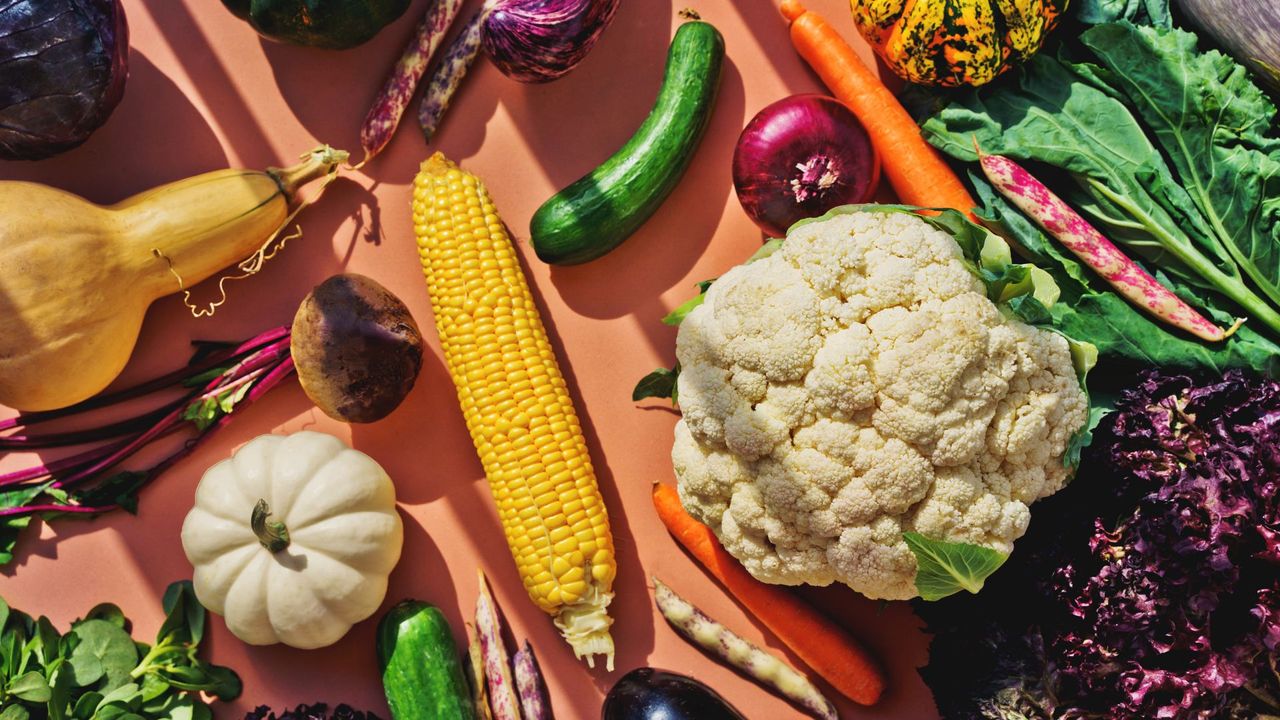
If you're feeling low in mood and motivation, you're not alone. After a summer of 30-degree days spent in the sunshine, long evenings, and maybe even a holiday or two, it's natural to feel like you're on a comedown - an 'autumn slump', if you will - as September rolls around and life returns to 'normal'.
Learning how to take care of your brain again with plenty of sleep, exercise, and other serotonin-boosting activities helps, but so does optimising your eating habits for the new season.
Dr Megan Rossi is an award-winning scientist, practising clinician, and the founder of The Gut Health Doctor. I caught up with her this week to find out how we can improve our gut health for winter and start the colder seasons on a high note.
1. Eat frozen
In the summer, we tend to eat lots of "really high antioxidant-rich fruits and vegetables, like peaches and nectarines", says Dr Rossi. "These are fresh, delicious, and rich in polyphenols (plant compounds with antioxidant and anti-inflammatory properties), but we need to remember that these foods might not be as readily accessible [in the autumn and winter]."
That's when frozen foods come in to save the day, she says. "Can you get frozen varieties of berries and spinach, for example?" These are just as rich in nutrients and polyphenols as fresh fruit and vegetables.
2. Eat more fibre
It's important to get more fibre in your diet as winter starts to roll around, as we'll all be relying on our immune systems a lot more, says Dr Rossi.
"Our immune system works harder in the winter as it's exposed to more aggressive viruses. We know that 70% of our immune system lives in our gut and therefore, in turn, our gut has to work that little bit harder to support it," she says.
"Fibre gets broken down into short-chain fatty acids, which really strengthen the gut lining and immune system. That's why it's more important to have more fibre in the autumn and winter."
But you don't have to just take Dr Rossi's word for it. A study from King's College London showed that people with a diet rich in fibre and polyphenols had a 40% lower risk of becoming unwell with certain viruses.
"We know there is a good link between nourishing your diet in autumn and winter and protective benefits," she adds.
3. Include more fermented foods
If you've ever researched gut-healthy foods, fermented foods like sauerkraut and kefir are likely to be the first ones to come up - but that's for good reason, says Dr Rossi.
"We know this way of eating is really going to feed the different types of microbes that regulate our oestrogen and help with bloating," she says.
4. Lean into the winter warmers
"People tend to eat less starchy vegetables in spring and summer, like root vegetables and whole grains - the winter warmers - but we know these can be really beneficial because they've got different types of fibres in them," says the doctor.
One of these fibres is resistant starch. "Human cells can't digest it, but it feeds the gut bacteria and produces short-chain fatty acids, which help regulate things like our appetite," she says.
It's for this reason that resistant starch is also considered a good GLP-1 alternative. "Those short-chain fatty acids help stimulate the production of the GLP-1 hormone, which is the target hormone for Ozempic," she says. "It works very similarly to that drug."
5. Add foods, don't take them away
The key to good gut health is adding foods to your diet, rather than restricting yourself. While alcohol alternatives will always be better for your gut than one too many glasses of wine, like most things in life, it's about moderation.
"I see people a lot in my clinic who are trying to look after their gut health and have been led to believe they need to cut all these foods out. That restriction might not be a good thing over time," she says.
"It's more about including the super six, which is six plant-based food groups made up of wholegrains, nuts, seeds, fruit, vegetables, herbs, spices, and legumes like chickpeas and butterbeans," she says.







